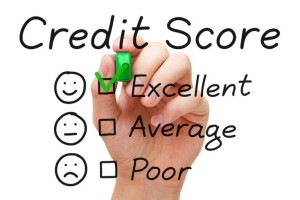
A perfect credit score is impossible to achieve, but outstanding credit — meaning a score over 800 — is within anyone’s reach. If you want to clean up your credit history and make it into the 800+ club, here’s what you need to do.
Utilize, Utilize, Utilize
Utilization, a ratio used by credit companies to help determine your score, is how much credit you use, or your balance, compared to how much credit you have available, or your limits. No lender likes to see that you have a huge chunk of reoccurring debt, so most experts suggest that for the best score possible, cardholders should maintain a balance lower than 50 percent of their limits. When your balance creeps over the halfway point, your score will begin to suffer, taking hits every month that your utilization is inadequate.
Still, utilizing your card will help your score incrementally improve. Paying off your balance in full every month makes financial sense, but maintaining a balance will add to your credit score every month. Experts claim that the average utilization of cardholders with scores over 800 is about 7 percent. You can also ask your creditors to increase your credit limit, but as the recession remains fresh in public memory, you might have a hard time convincing card companies to do so.
Love the Cards You Have
Not every credit card is right for every person. What is right for your neighbor (who has three kids and runs her own business) might not be right for you. Improving an already adequate credit score can require quite a bit of diligent spending, which means it is essential that you have credit cards that work for your unique lifestyle. You can find cards that give travel rewards, gas and grocery rewards, business rewards, and more — there are even cards that are low-cost to help those struggling with credit gain a better foothold. The important thing is that you use your credit cards often to show that you are responsible with your use of credit.
Maintain a Balance
Balance isn’t just important on your credit card statements — it’s also important in your wallet. You should only have as many cards as you need to thrive. The average American keeps three credit cards, but younger generations are beginning to hold onto as many as seven at a time. Unfortunately, every time you apply for a credit card, your score drops; by applying for a number of cards all at once, the decrease could be substantial. It is best to stop with three or four cards, which should provide all the necessary benefits to keep your life happy and your score high.
Alternatively, if you do have cards you don’t use, you should avoid closing them. When you get rid of a card, your available credit limits will go down, thus increasing your utilization ratio and damaging your score. A better solution is to make one or two purchases with unused cards every month and pay off those balances in full.
Mix and Match

However, you should never take out a loan you don’t need just to transform a good credit score into a great one. If the time is right to invest in a home, car, education, or business, then you shouldn’t shy away from it for credit score reasons, but accruing debt with no return is unwise.
Wait and Watch
While you make payments on time and practice other smart credit habits, your credit score should steadily improve. To make sure your pains are paying off, you should pull a credit report every few months to evaluate exactly how your spending is impacting your score. Depending on the initial quality of your score, you might have an outstanding score in less than a year — and then you can celebrate with a major expense.